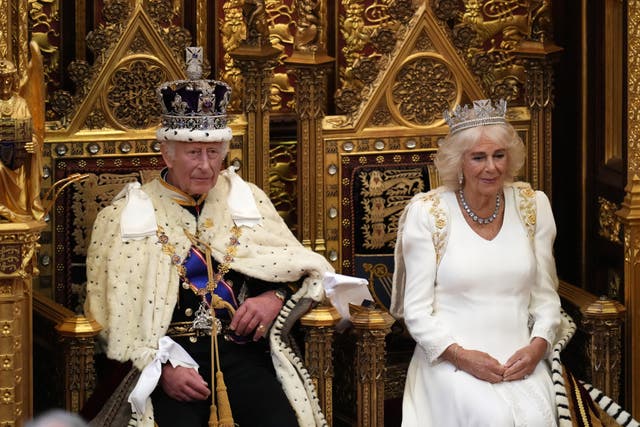Benn defends decision to keep truth recovery body despite repeal of Legacy Act
The act, aimed at addressing the legacy of Northern Ireland’s past, has been almost universally opposed by parties and victims’ groups.

Northern Ireland Secretary Hilary Benn has defended plans for the independent truth recovery body to go ahead despite the Government’s vow to repeal the Legacy Act.
The King confirmed in his speech at the State Opening of Parliament on Wednesday that measures will be brought forward to “begin the process” of repealing the Act.
While the entire Act cannot be repealed without something to replace it, the Government is expected to repeal the controversial policy of offering conditional immunity for Troubles crimes among first steps.
The Act, aimed at addressing the legacy of Northern Ireland’s past, has been almost universally opposed by parties and victims’ groups.
It offers a limited form of immunity for perpetrators of Troubles crimes in exchange for full co-operation with the truth recovery body, the Independent Commission for Reconciliation and Information Recovery (Icrir), and halted civil cases and inquests which were not at findings stage earlier this year.
Speaking to the press in Londonderry, Mr Benn said it was “quite clear” the Legacy Act did not have the support of families who lost loved ones during the Troubles.
“What is quite clear is that the Legacy Act, as it is currently on the statute book, does not have support from the families, and it doesn’t have support from political parties in Northern Ireland, and that is why we are committed to repeal and replace it,” he said.

However, he said it could not just be struck from the statute book, leaving a void.
He said conditional immunity had already been struck down by the High Court in Belfast, and the Government was committed to removing it from the statute books.
But he said he was not proposing to abolish the Icrir.
“When it comes to the independent commission, I’ve made it clear previously that I am not proposing to abolish it,” he said.
“We’ve talked about wanting to get back to the principles of the Stormont House agreement.
“That envisages actually two separate organisations, one dealing with information recovery, the other dealing with continuing investigations.
“They are, in effect, combined in the commission.
“I welcome what Sir Declan Morgan has said about the way in which he wants the commission to go about its work, for example, having public hearings.
“I think that’s a really positive step, and I’m looking forward to meeting him soon in my new capacity to talk about how that could be taken forward.”





